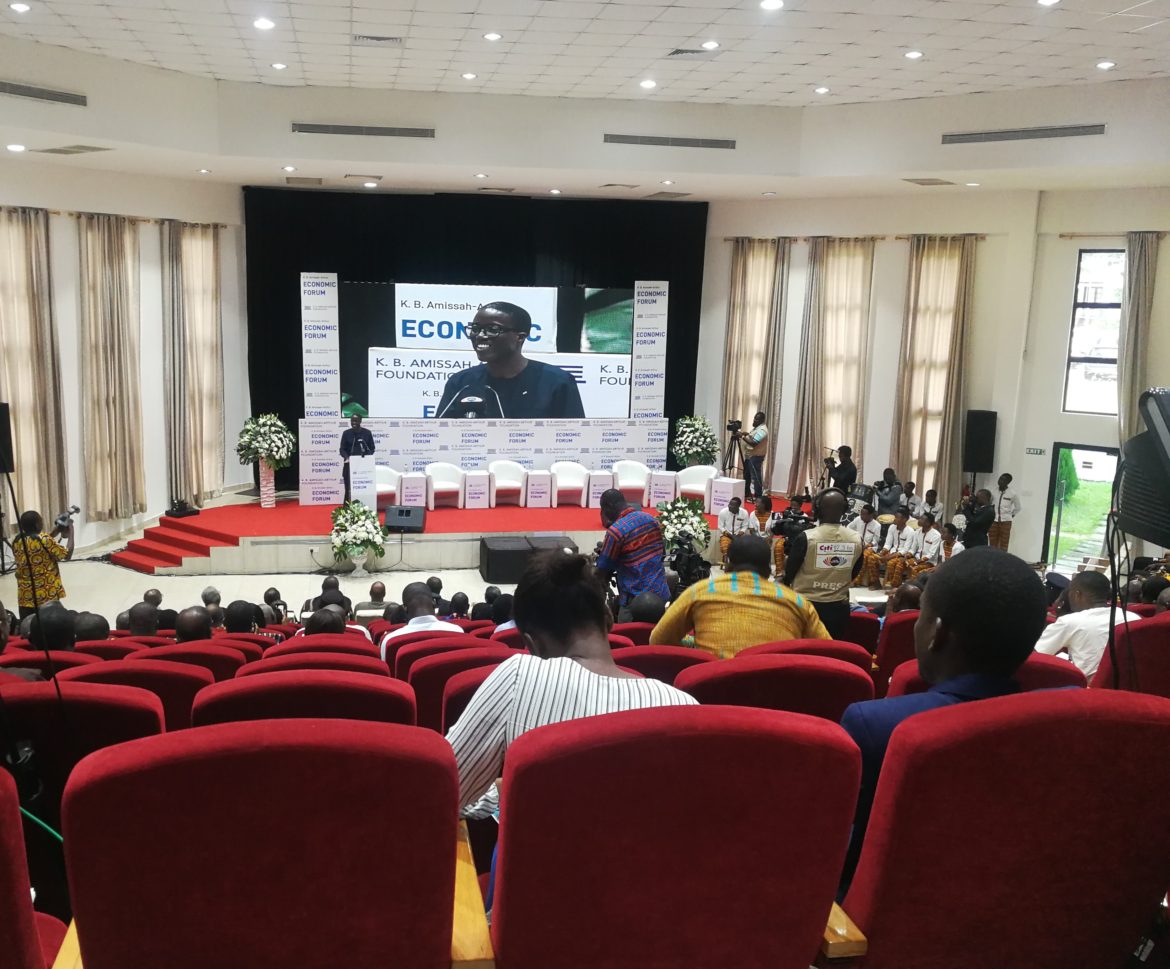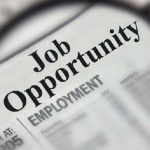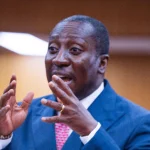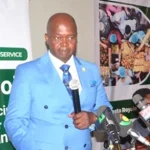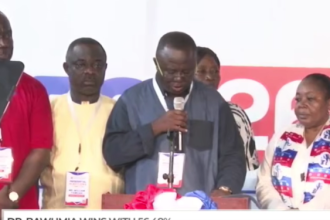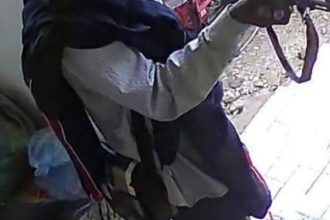The Amissah-Arthur family and Foundation have held the maiden memorial service of fallen former vice president Kwesi Bekoe Amissah-Arthur at the University of Ghana, Legon.
The occasion doubling as a memorial and economic lecture paid glowing tribute to the deceased lecture, technocrat, governor and politician while assessing the preparedness of Ghana and Africa in being competitive in the years ahead.
In session for the June 28 gathering was former president John Dramani Mahama, NDC Chairman Samuel Ofosu-Ampofo, Dr. Mohamed Ibn Chambas, former Vice-Chancellor of the University of Ghana, Professor Ernest Aryeetey, Prof. C. Soludo, widow Matilda Amissah-Arthur, daughter Araba Amissah-Arthur and son Kwesi Nyan Amissah-Arthuras well as mother, Effie Amissah-Arthur.
Other notables who were in session were Dr. Paul Acquah, Justice Apau, Nana Kobina Nketsia V (Omanhene of the Essikado Traditional Area), Prof. Jane Naana Opoku Agyemang, Mr. Emmanuel Armah Kofi Buah, Dr. Johnson Asiama (former Deputy Governor of Bank of Ghana), Dr. Amoako Tuffour of the Economic Management Team, Joyce Bawah Mogtari, Yaw Boateng Gyan, Gossie Tanoh, Nana Sam Brew-Butler, Ekwow Spio-Garbrah, Ms. Hon. Hanny Sherry Ayittey and Mr. Ato Ahwoi.

Associate Professor and Head of the Economics Department William Baah-Boateng submitted the late economics notable who got his training at the university from 1971-74 returning to earn a Master of Science degree in Economics in 1976 played a huge role in the funding and construction of the Economic Department’s conference facility.
He stated while it was former governor Paul Acquah’s time that sod was cut for the economics department to have its theatre, it was Amissah-Arthur as governor of the central bank who ensured the university got funds timely adding even as vice president, he still kept an eye on the project eventually commissioning it in 2016.
“This however is just the phase one of the project. We ask the notables trained by the department to help provide funding to complete the other phases of the project,” Associate Prof. Baah-Boateng rendered.
For Amissah-Arthur who served as lecturer before moving to the finance ministry, those who knew him closely attest he was keen to simplify economics and for economics to positively lift people out of poverty.
United Nations special representative of the Secretary-General and Head of the United Nations office West Africa and the Sahel (UNOWAS) and Deputy Minister for Education in charge of Tertiary Education and Chairman for the occasion, Dr. Mohammed Ibn Chambas; mentioned the University of Ghana training had served the former veep well thanks to its academic rigour and intellectual discipline enabling him excel in his banking and finance, consulting, politics and philanthropic fields.
The former Deputy Foreign Secretary further stated Mr. Amissah-Arthur had molded and mentored many students at the University of Ghana especially at the Economics Department adding “even when he left the university, he always considered himself part of the Legon family.”
Son of the late veep, Dr. Kwesi Nyan Amissah-Arthur in his address submitted while some are preoccupied with leaving a legacy of wealth, he reckons the most important legacy to leave imprinted on associates or dependents is of diligence, hard work and principles.
“We wondered what to do adequately to honour a man who did so much,” Dr. Kwesi Amissah-Arthur rendered adding his dad did not only teach economics but practiced it too even at home.
“He practiced opportunity cost when you asked for an item and he asked that you choose either the item or rather have your school fees paid,” the son disclosed noting that as his dad favoured people centered economics and economics fit for purpose, he did not play with data, statistics and facts.
When it came to the special announcement, Kwesi Nyan Amissah-Arthur disclosed the family has instituted an annual award scheme for a doctor of philosophy (PhD) studies at the Economics Department to train a new generation of economists with practical solutions to national challenges. He said a “deserving high caliber students” will be funded in perpetuity thanks to an investment made which will bear fruit and self-finance the programme.
Additionally the ‘K.B. Amissah-Arthur Chair in Economics’ initiative will ensure the naming of a chair at the university to fund research activities and the training of a new crop of economists at the department. The chair would be tasked to help solve some of the economic problems that the late Vice-President was passionate about. The initiative it is hoped will help get and retain top notch global professors who can offer solution to Ghana’s and Africa’s problems.
He mentioned that the initiative had yielded good response from dignitaries in order to hit the US$1 million target.
Former Nigerian Central Bank governor, Prof. Charles Chukwuma Soludu, who gave the keynote address, confessed he couldn’t recall ever meeting the late vice president but having read on him, found there were similarities in their career paths and when he discovered that P.K. Amissah-Arthur had taught at the Anambra State College of Education, Awka he was delighted.

The former central bank governor who served from 2004 to 2008 in giving his lecture attempted to enter into K.B.’s mind and rendered some viewpoints he believed the late statesman would have held.
Prof. Soludu submitted that year 2100 will see Africa and Asia recording about 80 percent of the world’s population requiring that African states planned ahead for the population explosion.
He submitted by then Lagos will record 88 million inhabitants while Nigeria exploded to 752 million adding in the years ahead, super cars, robotics and AI will become mainstream phenomenon.
“Ghana is relatively doing well compared to other African states. Ghana’s GDP growth rate over 6 percent is impressive compared to Nigeria’s 2 percent. Ghana is the most stable country in Africa,” the financial consultant stated adding from a recent grading of 178 countries which needed to do more to rectify their economies, Ghana placed 110 whiles Nigeria secured the 14th spot indicating West Africa’s most populous country needed to urgently reform,” Prof. Soludu pronounced.
The man who secured a first class during his undergraduate education admonished Ghanaians not to take their achievements for granted. Prof. Soludu observed often news platforms or media highlight the negatives but there exist positives in Africa too which need highlighting.
He submitted the 2008/9 global economic crunch exposed economists greatly noting “it showed economists lacked the tools to meet the exigencies of the current world.”
The academic, finance man and public servant reckoned that it was not enough to have publications in economic journals rather economists must also develop the skills to be able to convince the power brokers about their ideas and proposals to make meaningful impact in the lives of citizens.


